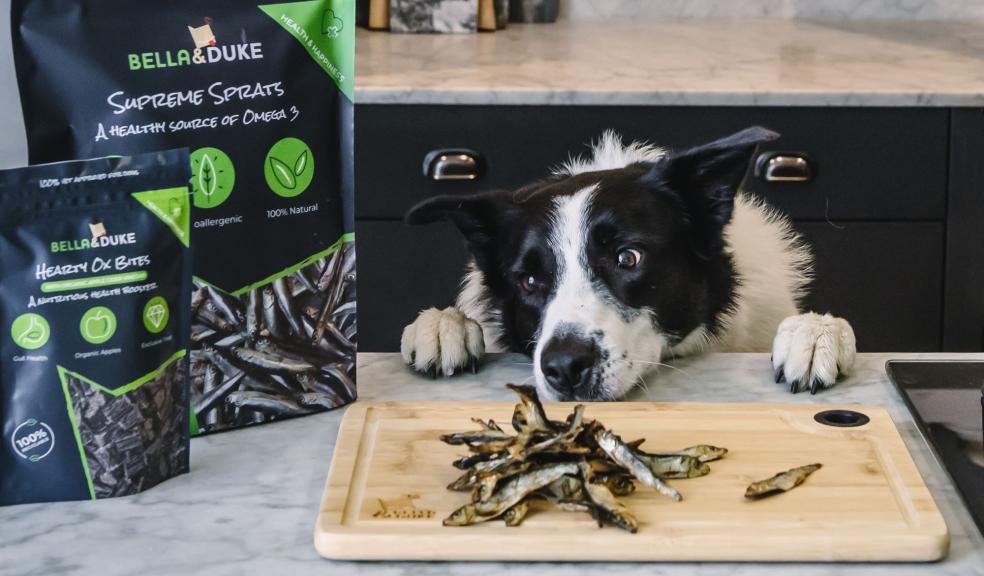
Experts guide to feeding our fussy furry friends
Over the years, we've become accustomed to our canine friends devouring anything that's put down in front of them but like ourselves our dogs' habits can change and they may start becoming a bit more choosy when it comes to mealtimes.
Ensuring that you remain calm and create a relaxing environment is key to encouraging your dog to eat on a regular basis.
To ensure your dog is enjoying mealtime, here are Bella & Duke's natural canine behaviourist, Caroline Spencer's top five tips:
- Find the right feeding location
Creating a calm feeding environment without distractions is fundamental when it comes to fussy eaters. Spend some time in the room where you'll feed before feeding so that you, and your dog, can relax before their meal.
Place the food on the floor where your dog is going to feel comfortable eating, avoid passageways, hallways or even the corner of the room – they need their 360 vision to eat in comfort.
Sit with your back to your dog when they're eating so they don't feel watched and can eat uninterrupted.
- Timing mealtime
You may find that your dog, especially an anxious dog, eats better in the evening.
You are calm, the day is done, everyone is home and more relaxed. Feeding your dog once a day is perfectly fine.
- Add tasty additions
Adding a favourite natural, dehydrated treat like our Supreme Sprats or a little bit of beaten raw egg to their food will encourage many fussy dog to get stuck in.
You could also sprinkle their meal with antler powder, drizzle some bone broth over it or even add a small amount of tinned sardine in spring water to enhance the aroma.
- The scavenger method
Dogs are natural opportunists when it comes to kitchen scraps. Try the method of 'obliviously' dropping your dog's food on the floor for them to hoover up.
By avoiding eye contact or communication this helps eliminate any added stress your dog may have.
90% of dog owners have seen this method succeed with their fussy eaters.
- Ration portions
Many dogs prefer to eat smaller dollops of food, and some will even take it back to their special places to eat.
If your dog often takes food and treats to their bed or under a table, put their meals down there for them to enjoy them where they prefer.
Caroline Spencer, natural canine behaviourist at Bella & Duke added; "It can be a worry when our pets stop eating but more times than not there is a simple reason behind it. Before racking up the vet bills consider how you can help create calm around mealtimes and think about how their meals are being presented to them.
"By adding a simple spruce to their meal or by making it more interactive can really help peak their interest".
Here are Caroline's top ten reasons why your dog might stop eating;
- A health issue
- Age
- Holding out for a treat
- New unfamiliar food
- Coming into season
- Warm weather
- Separation anxiety
- Chemical residue after washing
- Owner's stress, wellness and mood
- Certain medications can also reduce or increase your dog's appetite







